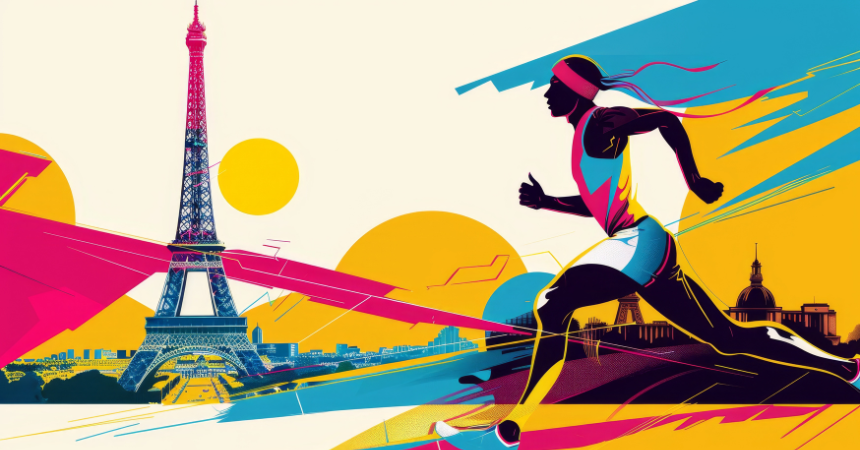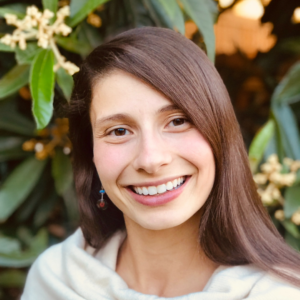More than Medals: Stories of Resilience from Refugee Athletes at the 2024 Paris Olympics


By Alisa Vereshchagin, Senior Project Associate, Center for Professional Learning
Throughout history, the Olympics has captured the imagination and excitement of people around the world, and this year’s Olympics in Paris was no different. Around the world, millions of people gathered and tuned in to witness the drama, heartaches, and triumphs.
While most athletes competed as part of a national team, a unique group represented athletes across borders. The Refugee Olympic Team, established by the International Olympic Committee (IOC) in 2016, represents hope and resilience for millions of displaced people worldwide. The team’s mission is to provide talented athletes forced to flee their home countries the opportunity to compete on the world stage, showcasing their skills and determination.
This year, the Refugee Olympic Team fielded 37 athletes competing across 13 sports. From judo and weightlifting to cycling and swimming, these athletes demonstrated their unwavering spirit and resilience. Led by Chef de Mission Tegla Loroupe, a former world-class marathon runner and advocate for peace, the team carried a message of hope and unity.
Filippo Grandi, the UN High Commissioner for Refugees, praised the team, saying, “The Refugee Olympic Team reminds us that anyone can aspire to excellence, no matter their circumstances.”
The team’s presence at the Olympics serves as a reminder of the global refugee crisis, inspiring action and compassion from the international community.
All of the athletes on the Refugee Olympic Team are impressive. Below we profile several of them. We also encourage you to read about the other athletes.
Cindy Ngamba, a boxer originally from Cameroon, sought asylum in the United Kingdom, where she continued to pursue her passion for boxing despite facing numerous challenges, including the uncertainty of her immigration status. In Paris, Ngamba made history by becoming the first member of the ROC to medal. She won a bronze in the women’s middleweight category. “Boxing has given me a purpose and a platform to share my story,” Cindy stated. “I hope to inspire others to keep fighting for their dreams, no matter the challenges they face.”
Manizha Talash, a breakdancer from Afghanistan, made history as one of the first athletes to compete in the new Olympic sport of breaking. Growing up in Kabul, Manizha faced cultural challenges in pursuing her passion for breakdancing, a sport not traditionally embraced in her community. Manizha drew the attention of spectators worldwide in the pre qualifier event, during which she wore a cape that read “Free Afghan Women.” Although disqualified, because political slogans are forbidden at the Olympic games, Talash’s story highlights the transformative power of dance as a means of empowerment and self-expression. Of her dancing, Talash stated, “Breaking is my way of showing that women can be strong, creative, and fearless. I want to inspire others to break free from limitations and follow their passions.”
Musa Suliman, a gifted middle-distance runner from Sudan, has become a symbol of hope and perseverance. Displaced by ongoing conflict in his home country, Musa sought refuge in Kenya. His dedication and relentless pursuit of excellence led him to the Olympic stage, where he continues to inspire countless others with his story. In Paris, Musa competed in the men’s 1500 meters, achieving a personal best and earning a standing ovation from the crowd. His journey from a refugee camp to the Olympics is a powerful testament to the possibilities that can arise from adversity.
Some refugees who fled their home countries had the opportunity to compete for the countries where they sought refuge. One notable example is Sifan Hassan, originally from Ethiopia, who sought asylum in the Netherlands.
Despite her challenging journey, she emerged as a world-class athlete, winning three Olympic medals for the Netherlands: gold in the marathon in a new Olympic record time and bronze in both the 5,000 and 10,000 meters. Her success story highlights the potential of refugees to excel and contribute positively to their adopted countries when given the opportunity.
The achievements of refugees at the 2024 Paris Olympics serve as a powerful reminder of the human spirit’s resilience and strength. These athletes have overcome unimaginable challenges to compete at the highest level, bringing pride to themselves and hope to millions of displaced people worldwide.
As the world continues to witness the ongoing refugee crisis, the stories of these athletes remind us of the importance of providing opportunities for all individuals to thrive and contribute to a better world.
Learn about our work supporting refugee and immigrant education initiatives
 Alisa Vereshchagin
Alisa VereshchaginAlisa is Senior Project Associate at Childhood Education International’s Center for Professional Learning. She is an educator with more than a decade of experience in foreign language pedagogy. She has taught Spanish, Russian, and English as a Second Language to learners of all ages.
Outside of the classroom, Alisa writes language development curriculum for students in grades K-12, with a focus on interactive and technology-aided learning. She is passionate about training teachers – especially those working with vulnerable and language-minority populations – to be effective in their practice. She is a graduate of Kenyon College and holds master’s degrees from Northeastern University and the University of Massachusetts with specializations in Education and Applied Linguistics.